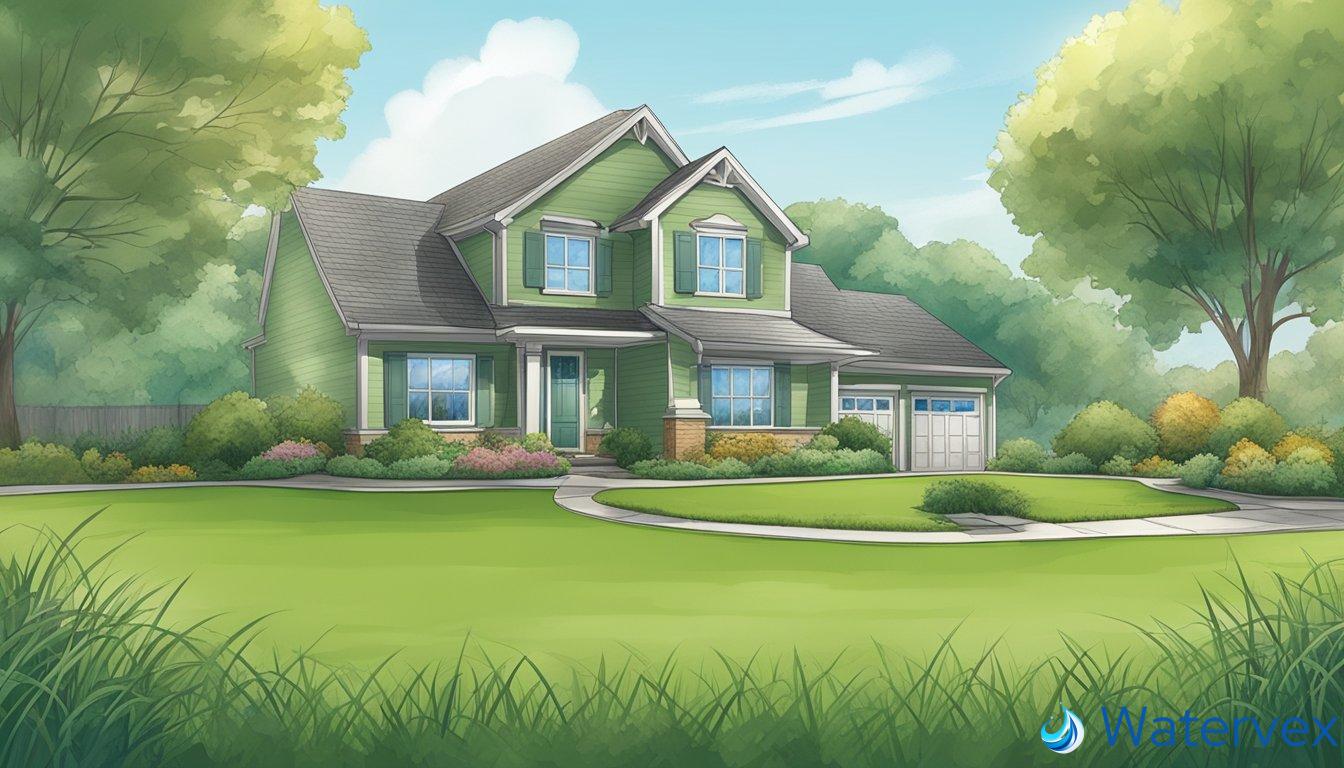Many homeowners with water softeners in their houses worry about the effect of the water softener discharge on their lawn. Water softener systems replace calcium and magnesium in hard water with sodium or potassium ions to prevent scale buildup and improve water quality for household use. However, the leftover brine solution, high in salt (sodium chloride) or potassium chloride, must be flushed out of the system—a process known as backwashing. It’s important to understand how this excess salt water interacts with your lawn’s ecosystem.

The concern is that the saline water could harm grass and plants when discharged onto the lawn. The high concentration of salt can draw moisture away from plant roots, a process called osmotic stress, leading to discolored or dead grass. Still, there’s more to consider than just salt. The overall design of your water softening system, the backwash discharge settings, and the particular type of grass can all influence the impact. While sodium levels are typically the crux of the issue, using potassium chloride as a softer could be a less harsh alternative for your lawn.
Key Takeaways
- Water softener systems can potentially harm lawns with saline backwash.
- The impact of softened water on grass depends on multiple factors.
- Potassium chloride is an alternative that may be less harmful to grass.
Does Water Softener Salt Harm Your Lawn?
When it comes to maintaining a healthy, green lawn, understanding the impact of water softener salt on your grass is crucial.
Can Softened Water Affect Grass Health?
Softened water typically contains higher levels of sodium as a result of the ion exchange process that replaces hardness minerals like calcium and magnesium with sodium. This sodium added to your lawn’s soil can eventually lead to a degradation of soil quality. High salt content can disrupt the balance of moisture in the soil, making it harder for grass roots to absorb necessary nutrients. If you’re relying on softened water for irrigation, over time, a build-up of salt can cause harm to your grass, potentially leading to yellowing and weakened grass.
What Precautions Should Homeowners Take When Using Softened Water for Irrigation?
Here are some specific steps you can take to protect your lawn:
- Test the water: Understanding your water’s salt content is a first step to ensuring it’s fit for your garden. If the sodium levels are high, consider alternative watering methods.
- Dilution is key: If softened water is your only option, dilute it with rainwater or untreated water to moderate sodium content.
- Monitor the soil: Regular soil tests can alert you to rising salt levels that could damage plant health. Adjust your practices before problems become apparent.
- Alternate water sources: Using irrigation systems not connected to your softener, like a rain barrel, can keep your lawn safe from sodium while still staying hydrated.
By being mindful of these considerations, you can ensure that your lawn care routine doesn’t inadvertently harm the lawn you work hard to maintain.

